Related Research Articles

Same-sex marriage has been legal in Hawaii since December 2, 2013. The Hawaii State Legislature held a special session beginning on October 28, 2013, and passed the Hawaii Marriage Equality Act legalizing same-sex marriage. Governor Neil Abercrombie signed the legislation on November 13, and same-sex couples began marrying on December 2, making Hawaii the fifteenth U.S. state to legalize same-sex marriage. Hawaii also allows both same-sex and opposite-sex couples to formalize their relationships legally in the form of civil unions and reciprocal beneficiary relationships. Civil unions provide the same rights, benefits, and obligations of marriage at the state level, while reciprocal beneficiary relationships provide a more limited set of rights. When Hawaii's civil union law took effect at the start of 2012, same-sex marriages established in other jurisdictions were considered civil unions in Hawaii.
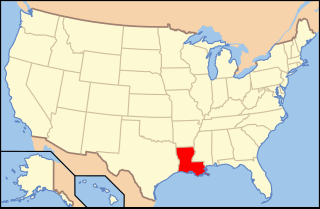
Lesbian, gay, bisexual, transgender, and queer (LGBTQ) people in the U.S. state of Louisiana may face some legal challenges not experienced by non-LGBTQ residents. Same-sex sexual activity is legal in Louisiana as a result of the U.S. Supreme Court decision in Lawrence v. Texas. Same-sex marriage has been recognized in the state since June 2015 as a result of the Supreme Court's decision in Obergefell v. Hodges.
Same-sex marriage has been legally recognized in North Carolina since October 10, 2014, when a U.S. District Court judge ruled in General Synod of the United Church of Christ v. Cooper that the state's denial of marriage rights to same-sex couples was unconstitutional. Governor Pat McCrory and Attorney General Roy Cooper had acknowledged that a recent ruling in the Fourth Circuit Court of Appeals and the U.S. Supreme Court's decision not to hear an appeal in that case established the unconstitutionality of North Carolina's ban on same-sex marriage. State legislators sought without success to intervene in lawsuits to defend the state's ban on same-sex marriage. North Carolina was the 28th U.S. state to legalize same-sex marriage.
Same-sex marriage has been legal in South Carolina since a federal court order took effect on November 20, 2014. Another court ruling on November 18 had ordered the state to recognize same-sex marriages from other jurisdictions. Following the 2014 ruling of the Fourth Circuit Court of Appeals in Bostic v. Schaefer, which found Virginia's ban on same-sex marriage unconstitutional and set precedent on every state in the circuit, one judge accepted marriage license applications from same-sex couples until the South Carolina Supreme Court, in response to a request by the Attorney General, ordered him to stop. A federal district court ruled South Carolina's ban on same-sex marriage unconstitutional on November 12, with implementation of that decision stayed until noon on November 20. The first same-sex wedding ceremony was held on November 19.
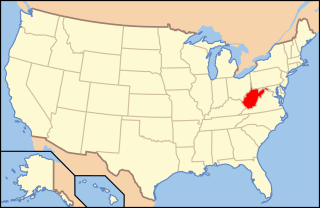
Lesbian, gay, bisexual, transgender, and queer (LGBTQ) people in the U.S. state of West Virginia face legal challenges not faced by non-LGBT persons. Same-sex sexual activity has been legal since 1976, and same-sex marriage has been recognized since October 2014. West Virginia statutes do not address discrimination on account of sexual orientation or gender identity; however, the U.S. Supreme Court's ruling in Bostock v. Clayton County established that employment discrimination against LGBTQ people is illegal.
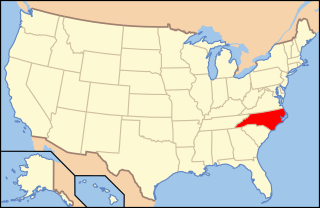
Lesbian, gay, bisexual, transgender, and queer (LGBTQ) people in the U.S. state of North Carolina may face legal challenges not experienced by non-LGBTQ residents, or LGBT residents of other states with more liberal laws.

Max Oliver Cogburn Jr. is a United States district judge of the United States District Court for the Western District of North Carolina.
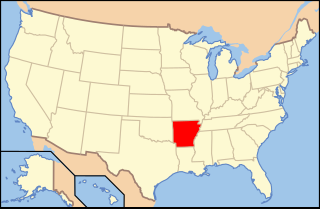
Lesbian, gay, bisexual, transgender, and queer (LGBTQ) people in the U.S. state of Arkansas face legal challenges not experienced by non-LGBTQ residents. Same-sex sexual activity is legal in Arkansas. Same-sex marriage became briefly legal through a court ruling on May 9, 2014, subject to court stays and appeals. In June 2015, the U.S. Supreme Court ruled in Obergefell v. Hodges that laws banning same-sex marriage are unconstitutional, legalizing same-sex marriage in the United States nationwide including in Arkansas. Nonetheless, discrimination on the basis of sexual orientation and gender identity was not banned in Arkansas until the Supreme Court banned it nationwide in Bostock v. Clayton County in 2020.
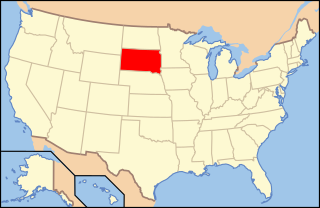
Lesbian, gay, bisexual, transgender, and queer (LGBTQ) people in the U.S. state of South Dakota may face some legal challenges not experienced by non-LGBTQ residents. Same-sex sexual activity is legal in South Dakota, and same-sex marriages have been recognized since June 2015 as a result of Obergefell v. Hodges. State statutes do not address discrimination on account of sexual orientation or gender identity; however, the U.S. Supreme Court's ruling in Bostock v. Clayton County established that employment discrimination against LGBTQ people is illegal under federal law.

Lesbian, gay, bisexual, transgender, and queer (LGBTQ) people in the U.S. state of Kentucky still face some legal challenges not experienced by other people. Same-sex sexual activity in Kentucky has been legally permitted since 1992, although the state legislature has not repealed its sodomy statute for same-sex couples. Same-sex marriage is legal in Kentucky under the U.S. Supreme Court ruling in Obergefell v. Hodges. The decision, which struck down Kentucky's statutory and constitutional bans on same-sex marriages and all other same-sex marriage bans elsewhere in the country, was handed down on June 26, 2015.

Lesbian, gay, bisexual, transgender, and queer (LGBTQ) people in the U.S. state of Kansas have federal protections, but many face some legal challenges on the state level that are not experienced by non-LGBTQ residents. Same-sex sexual activity is legal in Kansas under the US Supreme Court case Lawrence v. Texas, although the state legislature has not repealed its sodomy laws that only apply to same-sex sexual acts. The state has prohibited discrimination on the basis of sexual orientation and gender identity in employment, housing and public accommodations since 2020. Proposed bills restricting preferred gender identity on legal documents, bans on transgender people in women's sports, bathroom use restrictions, among other bills were vetoed numerous times by Democratic Governor Laura Kelly since 2021. However, many of Kelly's vetoes were overridden by the Republican supermajority in the Kansas legislature and became law.

North Carolina Amendment 1 is a partially overturned legislatively referred constitutional amendment in North Carolina that amended the Constitution of North Carolina to add ARTICLE XIV, Section 6, which prohibit the state from recognizing or performing same-sex marriages, civil unions or civil union equivalents by defining male–female marriage as "the only domestic legal union" considered valid or recognized in the state. It did not prohibit domestic partnerships in the state and also constitutionally protected same-sex and opposite-sex prenuptial agreements, which is the only part that is still in effect today. On May 8, 2012, North Carolina voters approved the amendment, 61% to 39%, with a voter turnout of 35%. On May 23, 2012, the amendment took effect.
Arizona SB 1062 was an Arizona bill to amend an existing law to give any individual or legal entity an exemption from any state law if it substantially burdened their exercise of religion, including Arizona law requiring public accommodation.
Same-sex marriage has been legal in Kentucky since the U.S. Supreme Court's ruling in Obergefell v. Hodges on June 26, 2015. The decision, which struck down Kentucky's statutory and constitutional bans on same-sex marriages, was handed down on June 26, 2015, and Governor Steve Beshear and Attorney General Jack Conway announced almost immediately that the court's order would be implemented.
Same-sex marriage has been legal in Mississippi since June 26, 2015. On November 25, 2014, U.S. District Court Judge Carlton W. Reeves of the U.S. District Court for the Southern District of Mississippi ruled that Mississippi's ban on same-sex marriage was unconstitutional. Enforcement of his ruling was stayed pending appeal to the Fifth Circuit Court of Appeals. On June 26, 2015, the U.S. Supreme Court ruled in Obergefell v. Hodges that the denial of marriage rights to same-sex couples violates the U.S. Constitution. On June 29, Attorney General Jim Hood ordered clerks to comply with the court ruling and issue marriage licenses to same-sex couples. The Fifth Circuit lifted its stay on July 1, and Judge Reeves ordered an end to Mississippi's enforcement of its same-sex marriage ban. However, until July 2, 2015, several counties in Mississippi continued to refuse to issue marriage licenses, including DeSoto, Jasper, Jones, Newton, Pontotoc, Simpson and Yalobusha.
Indiana Senate Bill 101, titled the Religious Freedom Restoration Act (RFRA), is a law in the U.S. state of Indiana, which allows individuals and companies to assert as a defense in legal proceedings that their exercise of religion has been, or is likely to be, substantially burdened.

Mississippi House Bill 1523, also called the Religious Liberty Accommodations Act or Protecting Freedom of Conscience from Government Discrimination Act, is 2016 state legislation passed in direct response to federal rulings in support of same-sex marriage. MS H.B. 1523 provides protections for persons, religious organizations, and private associations who choose to provide or withhold services discriminatorily in accordance to the three "deeply held religious beliefs or moral convictions" which are specifically outlined in the bill. These protected beliefs are 1) that marriage is and should be an exclusively heterosexual union, 2) sex should not occur outside of marriage, and 3) that biologically-assigned sex is objective and immutably linked to gender.
Senate Bill 297 is a 2015 Utah anti-LGBT act that allows for an exemption for individuals, religious officials, religious organizations, and government officers and employees who object to participating to issuing marriage licenses for marriages they object to based on "deeply held beliefs about marriage, family, and sexuality."
House Bill 142 is a 2017 law that was enacted in the state of North Carolina that repealed House Bill 2. The bill states that all "state agencies, boards, offices, departments, institutions, branches of government, including The University of North Carolina and the North Carolina Community College System, and political subdivisions of the State, are preempted from regulation of access to multiple occupancy restrooms, showers, or changing facilities, except in accordance with an act of the General Assembly." It also enacted that no local government in this state may enact or amend an ordinance regulating private employment practices or regulating public accommodations until December 1, 2020.

The North Carolina General Assembly of 2015–16 was the state legislature that was first convened in Raleigh, North Carolina on January 14, 2015, and concluded in December 2016. This was the 151st meeting of the North Carolina General Assembly. Members of the North Carolina Senate and the North Carolina House of Representatives were elected on November 4, 2014. Republicans controlled the Senate and Democrats controlled the House of Representatives.
References
- 1 2 Senate Bill 2 / S.L. 2015-75
- 1 2 Ansley v. North Carolina Case Docket. CourtListener. Retrieved August 12, 2024.
- ↑ "Federal Judge Dismisses Suit Against NC Magistrate Recusal Law". The Charlotte Observer, September 21, 2016. Retrieved August 12, 2024.
- ↑ "The Impact of Senate Bill 2 on Marriage Equality in North Carolina". North Carolina Law Review, Vol. 95, No. 5. Retrieved August 12, 2024.